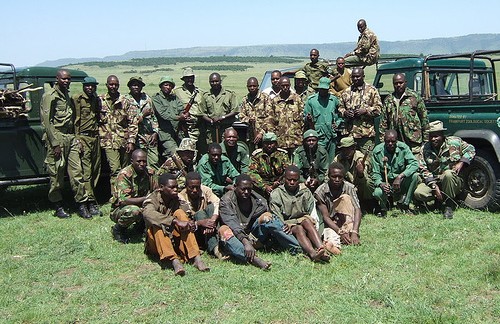Tsavo National Park is Kenya’s largest national park with 20,812 square kilometers and is home to incredible biodiversity. However, the early years of the park were marred by unchecked poaching of many of the native species including rhinos and elephants. In 25 years of poaching over 90% of the countries rhinos and elephants were illegally killed for their horns and tusks. However, in the mid 1990s CITES finally recognized what had been going on and listed rhinos and elephants as as Appendix I animals and a moratorium on all elephant and rhino products was enacted.
A local Kenyan who lives on the border of Tsavo National Park

In 1989 in a show of good faith Kenya burned 12 tons of ivory worth $1 million dollars. Tsavo National Park is now facing new types of pressures; when the park was first founded the population of Kenya was approximately 1 million people, it is now over 40 million people. This means that the edge of the park and human settlement is now a very obvious line of settlement on one side of the line and wild park line on the other side. Climate change, trade in arms between war torn states and the bush meat trade are now all major concerns for the Kenyan government and Tsavo National Park. Another problem is that as soon as animals cross the border into Tanzania they lose much of their protection as the Tanzanian government is not nearly as strict in their anti-poaching enforcement.
Elephants in Tsavo National Park

Black rhinos that had a population of 6000 in the 1970s is now down to about 50 individuals. The same story is true for elephants: 36,000 in the 1970s and only 6000 now. The future of Tsavo National Park is going to depend on some creative thinking of conservationists and government officials. It is obvious that the park and animals that call it home can not survive if a way is not found to have the park benefit the locals who live around its borders. With the price of ivory so high in China and other eastern countries the lure of poaching is just too strong.
Kenyan and Tanzanian anti-poaching units with suspected poachers

To read the full article click here

